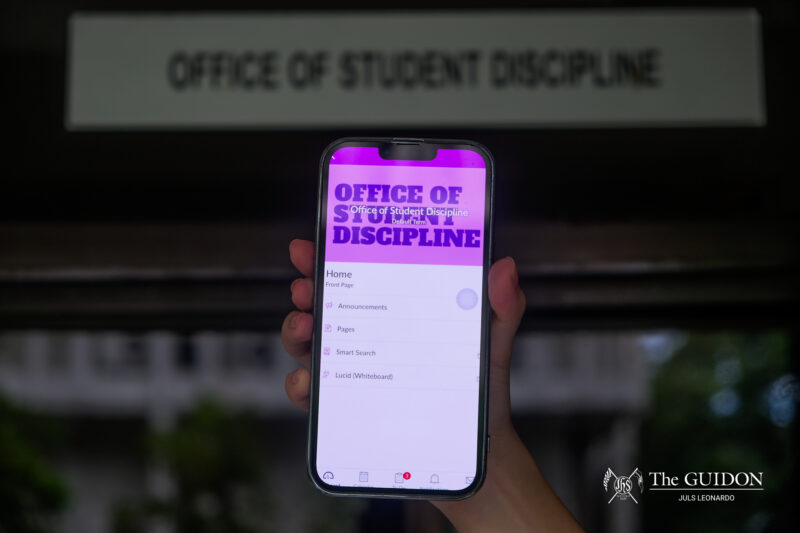AFTER MONTHS of deliberation, the Sanggunian passed the Mental Health Fund Act of 2020 on July 28 to finance various mental health initiatives for the Loyola Schools (LS) student body. A portion of the fund worth Php 1 million will be allocated as subsidies that students may avail to finance their psychiatric consultation and prescribed medication needs.
School of Social Sciences Representative TJ Alcantara, former John Gokongwei School of Management Representative Mica Torres, JGSOM Representative Cecilia Cancio, Ian Gabriel Pagdanganan, and Sydney Noelle Villanueva partnered with the Sanggunian Commission on Mental Health (CMH) to create the Act as a response to the “various mental health concerns within the Ateneo community.”
Section 11.2.1 of the Act states that students can apply for a subsidy by submitting the necessary requirements: Any proof of enrollment, a medical certificate or psychological evaluation, any prescription document, and an interview with Loyola Schools Office of Guidance and Counseling (LSOGC). Alcantara noted that the subsidies will be ready for distribution by October.
Funding initiatives and services
Following the advice of the Office of Student Activities (OSA) and the Central Accounting Office, the Sanggunian divided the fund into two parts: An endowment fund of Php 600,000 and a subsidy budget with the remaining Php 400,000.
The Sanggunian Department of Budget and Management will fund the endowment with the savings from the Sanggunian budget for AY 2019-2020. While the initial investment will remain untouched, the quarterly interest will be used for mental health plans such as subsidizing students’ mental health services.
Alcantara clarified that the endowment will not be used for the time being since it must earn interest first. “We know that we’re in an economic recession. For now, the endowment will just be set aside […] since [it] wouldn’t really gain much interest,” he said.
On the other hand, the subsidies will be directly accessible to students through their respective School Sanggunians. Section 17.1 of the Act mandates each School Sanggunian to allocate at least Php 75,000 for these subsidies in their respective semesterly budgets.
According to Alcantara, each School Sanggunian can finance up to 25 students, given that their medical bills are worth Php 4,000 each. “[Across all schools], we can service 80 to 100 students per semester and 200 students per year. I think that’s a big help for students who are in financial need,” he added.
Resolving issues
Alcantara shared that the Sanggunian had two previous attempts to invest Php 1 million for mental health initiatives, but these did not succeed due to a number of problems.
For instance, former Sanggunian President Hya Bendaña led the first effort in AY 2018-2019 after the student body voted to reallocate a portion of the Sanggunian budget for AY 2018-2019 into mental health subsidy funds during a 2019 Sanggunian General Elections referendum. However, this was unsuccessful. “[The fund] was not fully transitioned to the OSA and the next administration. Thus, nothing happened after the referendum,” Alcantara said.
In July 2019, then-Vice President Jb Bejarin filed the Mental Health Investment Fund Resolution in line with the previous attempt. Although then-Sanggunian President Quiel Quiwa approved it, Alcantara said that the fund did not materialize because it was not properly communicated to OSA.
Discussions regarding the fund resumed only in February, but the Student Judicial Court (SJC) deemed the fund unconstitutional in March. The Resolution cited sections on students’ rights and welfare from the 2019 Constitution of the Undergraduate Students, which had not been officially promulgated to the LS at the time. According to SJC Chief Magistrate Nicole Keith Tolentino, its promulgation was delayed by seven months. Following the incident, the Sanggunian published the 2019 Constitution and passed the new Mental Health Fund Act in May.
In contrast to the previous efforts, CMH Co-Commissioners Kaina Marie Sera Jose and Nadine Altavas, as well as CMH members Katrina Hanna Uy and Nicole Namoco, said that the inclusion of a subsidy to the current fund allows for a steady inflow of cash every semester. They said that it is “significantly more than what would have been compounded for the original [fund].”
Alcantara added that unlike the Mental Health Investment Fund Resolution, the Mental Health Fund Act stipulates Implementing Rules and Regulations that detail the full implementation process of said fund.
Promoting mental health
As of writing, Alcantara stated that the Sanggunian and the CMH are crafting a manual that simplifies the Act since the “complicated” financial processes of the fund may discourage students from applying. This will be ready by September.
Beyond providing financial aid to students, the Sanggunian also planned other mental health initiatives in line with the Act. For instance, Sera Jose said that the CMHsetupaPeerSupportProgram with the LSOGC to train student volunteers in becoming facilitators of mental health support groups. Sera Jose added that the CMH will release a database of mental health services and psychiatric help outside the LSOGC. Amid the quarantine, the CMH will also continue their online projects such as Humans of Ateneo and the Mental Health Awareness + Action Week.
ADDENDUM: Cancio authored the bill in place of Torres, who was on a Leave of Absence when the bill was filed and deliberated on.







